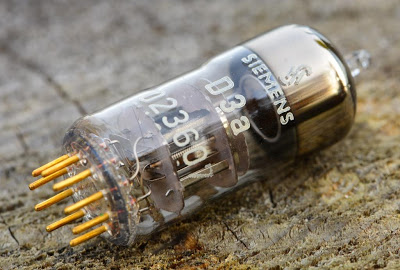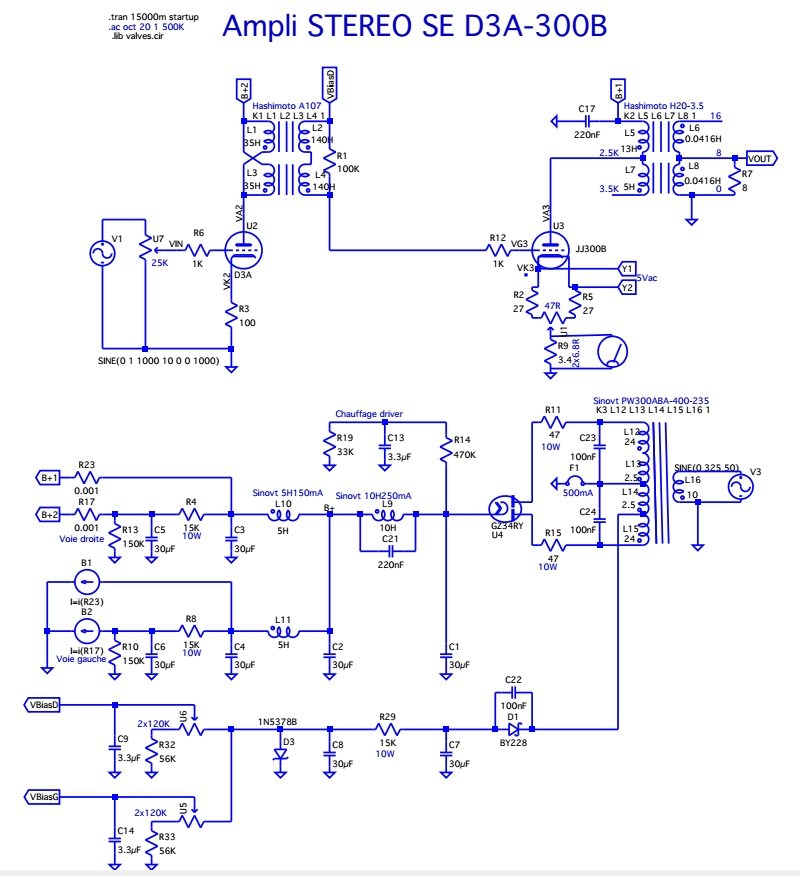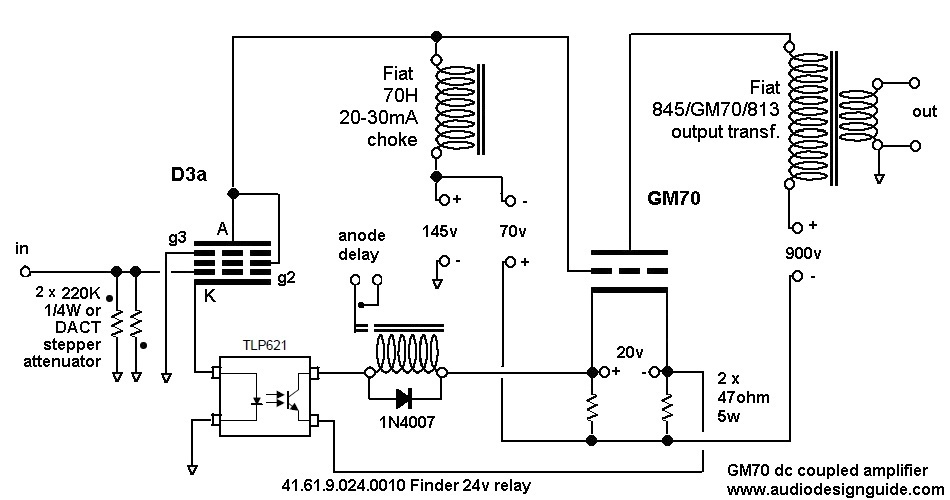 Аудио-википедия
Аудио-википедия
База знаний по hi-fi и high-end технике и комплектующим, отзывы и впечатления
Инструменты пользователя
Боковая панель
Содержание
D3aдрайверныелампыпентоды
Характеристики
Схемы
Полезные ссылки
https://www.hi-fi.ru/audioportal/topic/2707-lampy-c3g-c3m/
https://www.hi-fi.ru/audioportal/topic/1509-usilitel-na-odnoy-lampe-6zh52p/ - обсуждение 6ж52п (аналог)
Отзывы
http://vinylsavor.blogspot.com/2012/12/tube-of-month-d3a.html
Tube of the Month: The D3a
After the series about transmitting tubes from the 800s during the last 4 months, I will present a very different and more modern tube today: The D3a pentode.
I'm constantly asked for suitable alternatives to the hard to find EC8020 for use in transformer coupled LCR phonostages. Various pentodes work very well in this phono stage topology when triode connected. I already presented the E55L as an alternative which I used in two different LCR phono stage builds. The frist one can be seen here and another one here.
Читать дальше
Although signal levels are very small in a phonostage we want the amplification device to be as linear as possible. These are the plate curves for the triode connection from the datasheet:
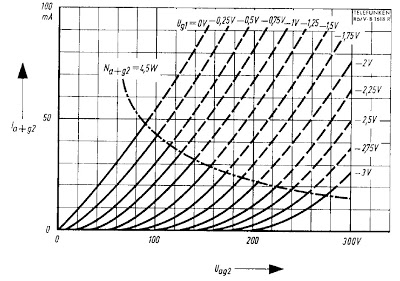
This looks promising! Let's see how this keeps up with reality. Here are the plate curves taken from an actual tube with a curve tracer. The scale is 5mA and 50V per step, 0.5V grid voltage spacing:
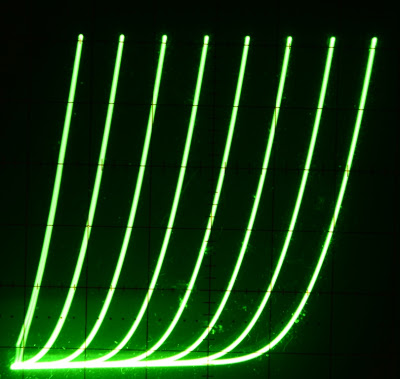
Looks perfect for audio applications.
The D3a was made by various european manufacturers: Telefunken, Valvo, Siemens, Philips. Although it has an american designation, the industrial type 7721, I'm not aware of any US based company who made this tube.
This tube has been manufactured by Siemens in the former western part of Germany. It has the characteristic pinched glass around the electrode structure.
Евгений K писал: Господа! А пробовал кто нибудь Siemens-Telefunken D3a? Вроде из этой же серии лампешка, в триоде Ra-1.9k, m-77, Ia-24mA, Ua-160v, и накал 6,3v и панелька стандартная.
Я использую D3A как line - Amplifier. Лампа очень капризная и нежная, что при таких крутизне и усилении в общем не удивительно, но если её «обуздать» - сродни гоночному автомобилю :D
Качает всё и вся, никакие кабели и проч. не помеха, звучание быстрое, предельно точное, исчезает размазанность, особенно слышно на сложном материале, как например tutti симф. оркестра или punch ударных или низкие звуки оргАна.
Основная трудность - добиться стабильности рабочей точки, катодный «тормоз» необходим, равно как и очень качественное анодное напряжение. Указанный режим не оч. хорош, согласен с AndreasS.
Для пояснения набросал имидж, 10 вольт на сетке организуется делителем напряжения R1/R2, в катоде течёт 24 mA, на 470 ом падает 11,28 вольт, относительно катода стало быть -1,28 вольт.
C3o - лампа очень редкая и дорогая, лучше купить или намотать накальный трансформатор на 20 вольт (для C3m).
Странно, Вас отговорили от D3a, а Вы поставили лампу ещё хуже и у Вас есть результат. Может это мнение Вы составили от новизны в звуке?
В моём гибриде 6Ж43п переиграли её 6Э6П EL861 и D3a. Последняя сейчас и стоит. 6Э5П не дотянула до этой троицы по звуку.
У 6Ж43п много микродинамики, а вот с макродинамикой есть небольшие проблемы. Имхо
6Э5П и 6Э6П усиление не хватит.
Если будете пробовать D3a, обязательно третью сетку на землю.
Звук меняется в лучшую сторону.
The 7721 is a spectacular output tube in this application. Probably the mostly available are Siemens-made 3DA in Rohre boxes and they are one of the best sounding 7721 as well. The old Siemens 7721 (in none Rohre boxes and with small Siemens printing) was actually made by Telefunken and you will find that in many instances the Telefunken tubes will be sitting inside the Siemens boxes and wise versa. The constriction is very much identical and they sound indistinguishable. Although the old Siemens/Telefunken tubes look sexy and hard to get but I do not detect that they sound more interesting then the Rohre-Siemens (I call them New Siemens but only because the Rohre boxes looks are colored and look fresher. In fact, the Rohre-Siemens tubes are 40 years old as well or something like this…)
Cat
В триоде выигрывает у 7788, в пентоде проигрывает.
Статья полезная и дает много поводов для размышлений.
Я пробовал следующие лампы в качестве драйвера в двухкаскадном варианте с прямонакалом на выходе (845,300в и тд)
– 6688,7788,7737,D3A,12hg7,12by7,pl802.
Использовал близкие к приведенным режимы, но больше руководствовался снятыми ВАХ-ами и реальными «раскрывами»
характеристик для получения нужного размаха и линейности.
Измерения и отслушивание показало, что слепое следование приведенным графикам не есть «путь в нужном направлении».
Приведенные режимы не лучшие и вообще – нужно все-таки смотреть снятые ВАХи и слушать, а не моделировать.
Тогда будут «сюрпризы» и приятные в том числе.
Ожидания не оправдались и лампы расположились в следующем порядке – D3A,pl802,12hg7,6688,7788,7737,12by7, это в порядке убывания результата прослушивания.
Режимы менялись для каждой лампы отдельно и не совпали с приведенными в статье.
Что касается ГК-71, то при анодном до 800в она показала себя лучше ГМ-70 по микродинамике и басу с одним и тем же выходным тр-ром(8к).
Tandy.
